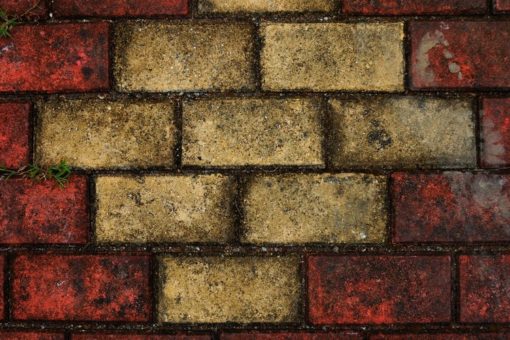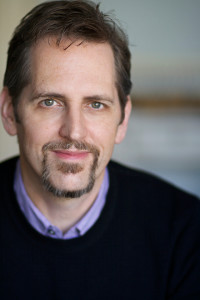When I tell someone I’m a writer, one of the most frequent questions I get is, “How do you deal with writer’s block?”
I have a standard answer that I’ve been using for years:
You don’t just sit there and stare at the blank page. You “write through it.” Which means that you write about being blocked. You write about why you’re blocked and what you’re blocked about. You examine the situation and write about the possibilities, the challenges, etc. You just keep “writing.”
I think that’s a pretty good starting point. But let me expand on it.
When I’m working on a script, at whatever stage of the process, I always have a second document that I call “notes.” It contains all my various scrawlings about the project, starting from the first day I considered it as something I might write.
The “notes documents” for the last four scripts I’ve written average about 80,000 words each. That’s basically a novel’s worth (or four screenplay’s worth) of musings, ideas and discussions with myself for every script I finish. It’s the master document where everything starts. And if I feel “blocked,” you can bet that I’m in that notes document, trying to work through it.
That’s not to say there aren’t times where it makes more sense to get up from the computer, go take a walk, or do almost anything else. For sure there is.
But I also believe in a daily structured writing practice, and when I’m in that allotted time, I usually keep it sacred in terms of actually being at the computer or actively working with the project in some way.
Why does writer’s block happen?
I would say it’s defined as “not knowing what to write next.” And maybe not having the energy or the belief in the project (or your abilities) to even try to figure that out. That’s the really bad part.
You’re maybe not sure what you really have, or that it’s any good. You might have a fragment of something that seems like it was working, but at a certain point, you reach a dead end, and you start to question everything. Or maybe you got feedback from someone who was underwhelmed or openly critical. Perhaps you agree that there are problems but have no idea what to do to solve them, or even if they are solvable. The basic concept of the project might now seem fatally flawed. You worry that all that time and energy was “wasted.”
I still go through this sort of drama on every project I write, at various points in the process. If I’m honest, a version of this sort of thinking is always present, and has to be dealt with. The questioning, the doubting, the not knowing what should happen next, or what needs improved, or how to improve it. And I know the writers I work with often experience this, too. And I tell them what I tell myself: just notice that’s going on in your head, and find some way to keep going.
“That next idea”
As I see it, at every point in the writing process, you’re really just looking for that next idea. It could be the idea for a story to begin with. Or it could be ideas for how to expand fragments of a possible story into something worth pursuing. It could be that you need ideas for characters or big structural points. Maybe you just need the specific events within a scene, or even a line of dialogue or description.
Basically, we writers are always in need of good ideas. When they come, and we recognize them, we eagerly write them down and start to explore them. But a lot of times it seems like they’re not coming. And we feel that we’re in “writers block.”
For me this is almost a daily occurrence. I don’t just sit down and have great ideas flow. Instead I consider what I have so far and I’m keenly aware of its flaws, what’s missing, and what I don’t “know” yet that I need to know to flesh out the rest of it and make it as good as it can be. There are so many “ideas” needed between now and the end point of the project, that it can seem overwhelming. And to the analytical mind that I usually show up with, those ideas seem to be in short supply.
But here’s the real key: the analytical mind isn’t the only option, and not the one that can solve this. In fact, it’s only helpful at certain points in the process where you want to put your “critiquer’s” hat on or your “organizing” hat. The rest of the time, being all tight, critical and analytical just constricts everything.
So this is really the most important thing I’ve learned about the writing process, in 30 years of doing it:
You have to be in a good mood.
What do I mean by that? A few things:
- You can’t be down on what you’ve written or down on yourself.
- You can’t be frustrated or impatient about what you don’t have or know yet, and what’s “not working.”
- You can’t focus on “figuring out” the solution to all of that from an analytical, critical perspective.
- You have to be accepting and sympathetic toward yourself and the project or idea in its current state — while open and curious about what might come next.
- It can’t be about pressure, anxiety, obligation and criticism. All of those things strangle creativity.
There’s a reason why it’s much easier to find solutions and interesting new ideas for someone else’s project than your own. Their project just isn’t that important to you. There are no stakes for you. It’s an easy, playful process to consider what might add to it. You can explore it without any of that negative emotional baggage, because it really doesn’t matter. You take it lightly.
That’s a key mindset to adopt in our own work. To be playful, and to lightly explore what might add to what we have. Not what it needs or what’s wrong with it or what needs fixed, but the positive side of what would be great to expand it and make it that much better.
I think it also helps to focus on one specific task at hand, rather than the big overwhelming picture of how much is still needed or isn’t working.
Let’s say you have an outline and are looking at the scene you’re going to draft next. There are probably things you don’t know yet, from the outline, to be able to write that scene. Possibly many things. (And maybe you need to first expand your outline into a “scriptment.”) So you focus on one of those small needs. It can be something very minute, like “What kind of TV show is he watching right now?” Some pesky little detail like that. Rather than being impatient to solve it and move onto the next thing, make a real meal out of it. Slow down, relax, explore, and play. Ask the question, to the universe, if you will, and see what comes. Maybe you’re typing the questions and any answers in that “notes document.” Or maybe you’re walking (or driving) around and talking to yourself, using a voice recorder.
Most of all, trust that the best answers (ideas) will come from that loose, easygoing, playful approach. And if you stay in it, each step toward finishing the thing can also flow that way, and be much more enjoyable. It’s a fun exploration, that’s all it is — not a goal-oriented achievement that really MATTERS.
For me, a good writing session is not measured in hours or pages but in how engaged in the creative flow I was — which means in a good mood, exploring, accepting, interested, open, and not too analytical.
When I come from that space, the results virtually always turn out better. I feel good about the process and that day’s output. And eager for the next day.
I don’t know about you, but that’s how I want to feel every day. And I’m glad I know how to get there.



Fear and trauma also interfere with creativity. You can’t access the creative areas of your brain, when you mind is stuck in fight/flight response, which can be cause by excessive anxiety, worry, pstd or complex ptsd. I learned this the hard way, (no pity, pls) but want to share – because it literally took months of therapy ($$$) just to get through the trauma before I wanted to write anything at all. And I researched the shit out of it – no one talks about it. But it really is a “thing.”
Great advice. I agree and have used the outline and creative monologuing to break through. But I also vomit draft just to see words on the page. And now that I don’t have deadlines, I wait until the mood is right.
I realise that I check none of the 5 dots mentioned for me to be in a good mood. I have not been able to write consistently ( more than blocks of 2-3 weeks from time to time) for years. And just to screw myself up even more, I am trying to write a sort of Lord of the Rings on earth with artefacts, politics, secret agents and 8 heroes trying to save the world. As a result I am stuck and frustrated and doing anything but writing.
This article, this article though…. is Amazing! Thank You Erik!
I thought I was the only one.
I work too many hours (plus do theatre at night) to write every day. I do most of my writing on weekends.
The scenes I see in my head, I write down. When no more scenes come, I put the ones I have in order. Then I write my “okay, now what?” notes. It works for me.
What a fabulous article. It’s a most generous gift. Thank you!